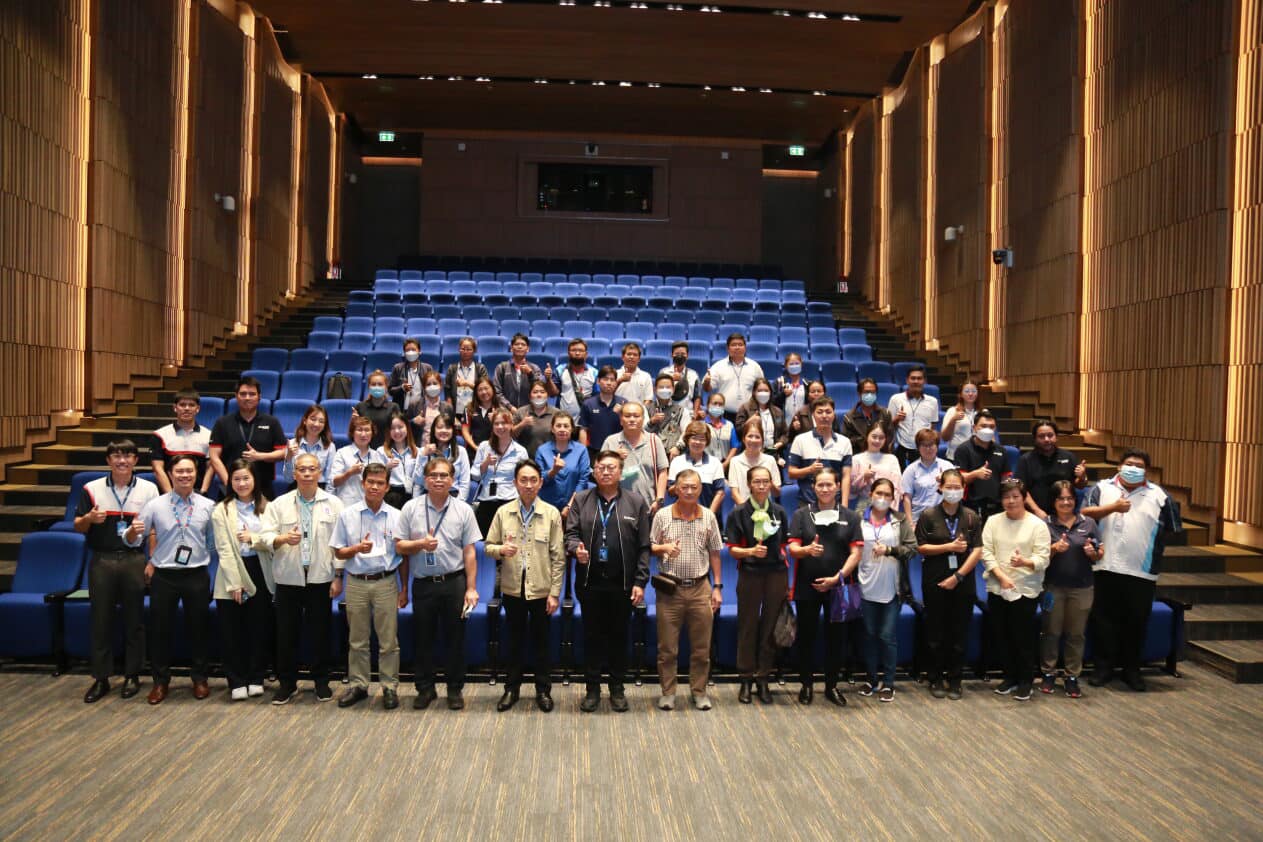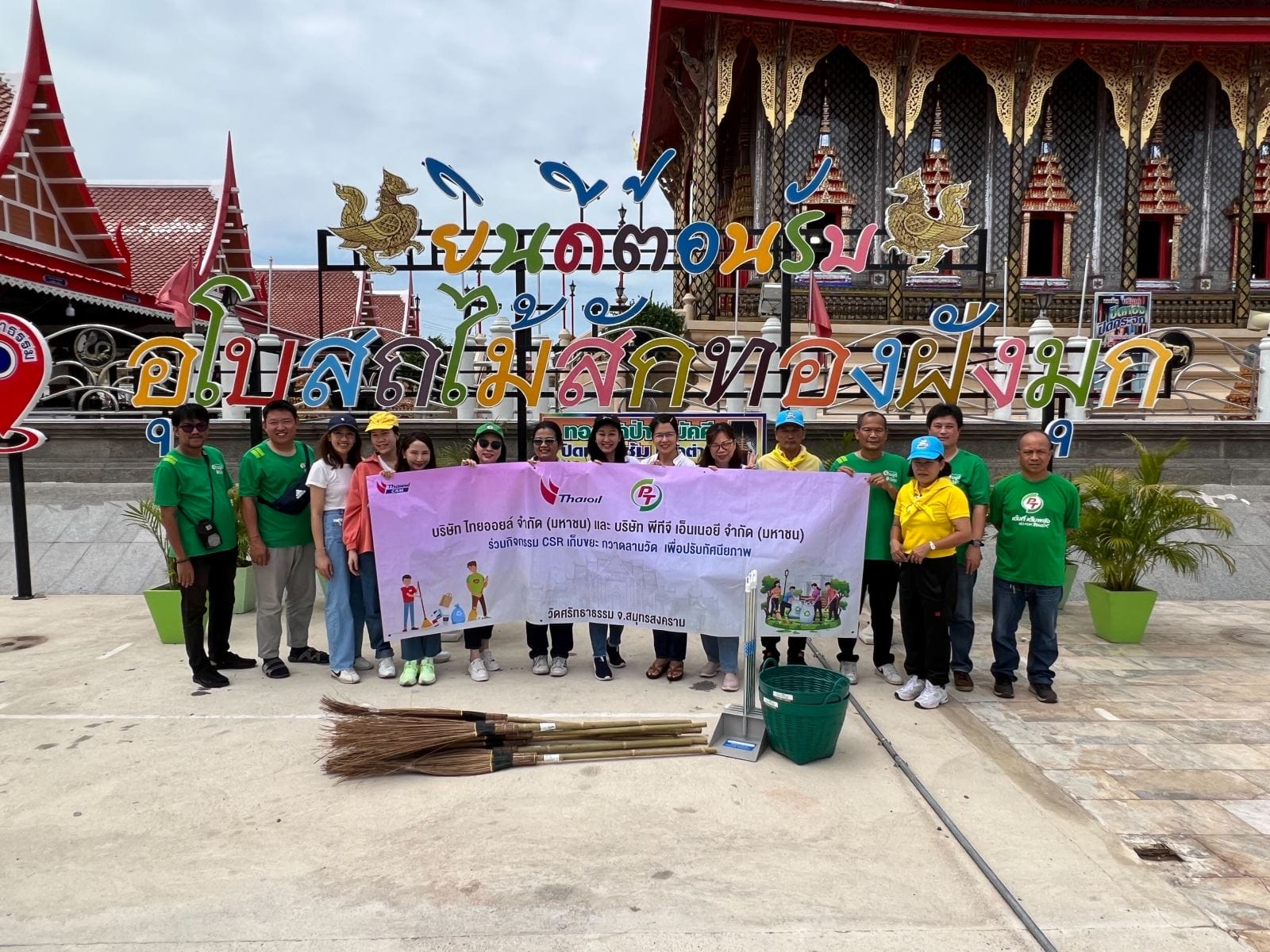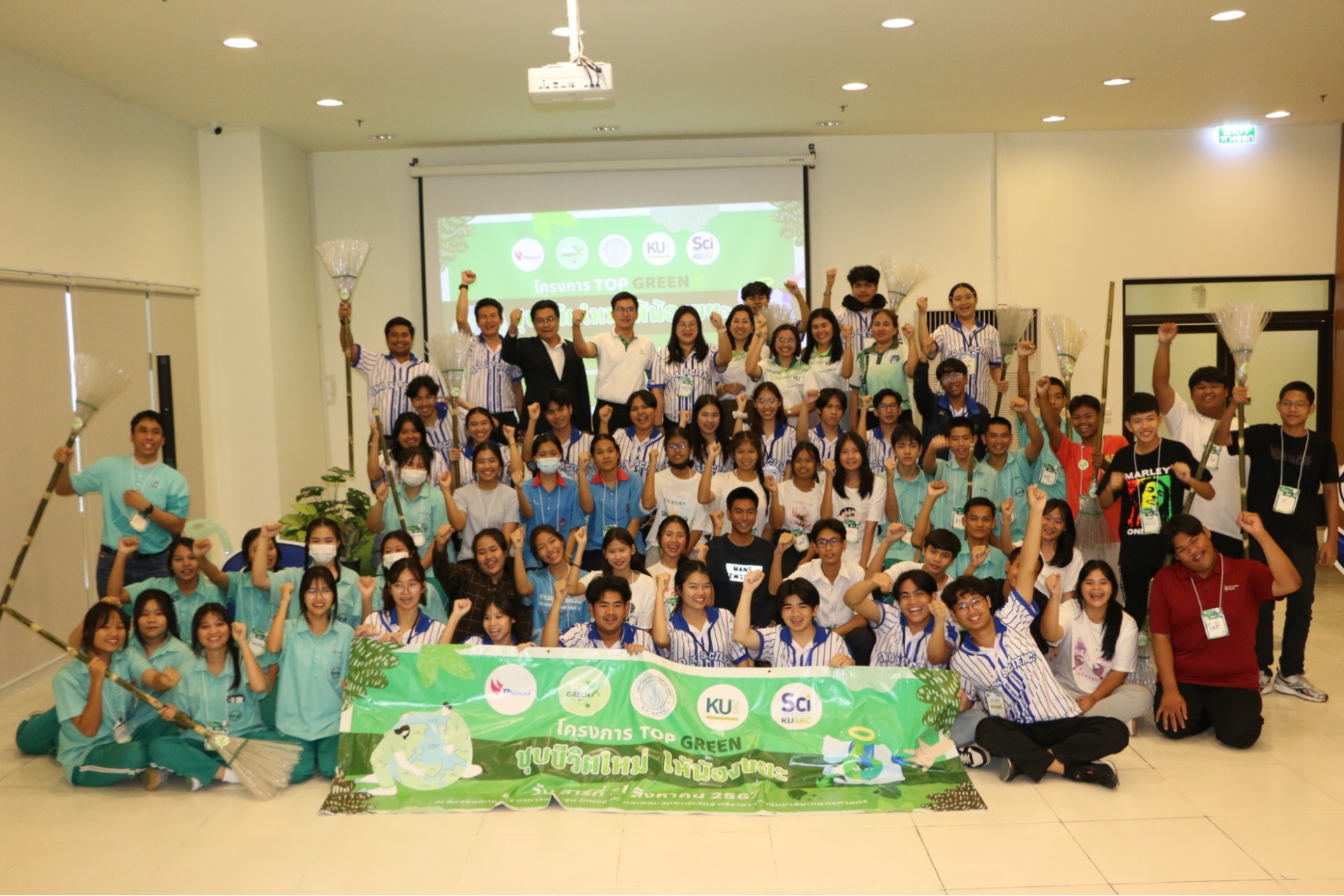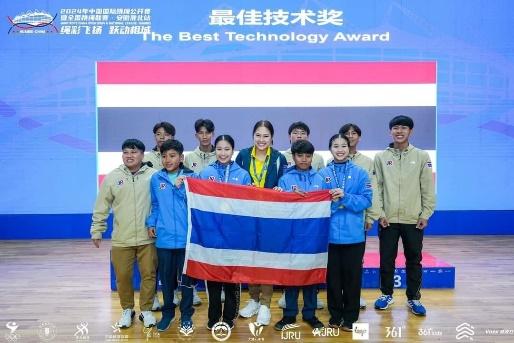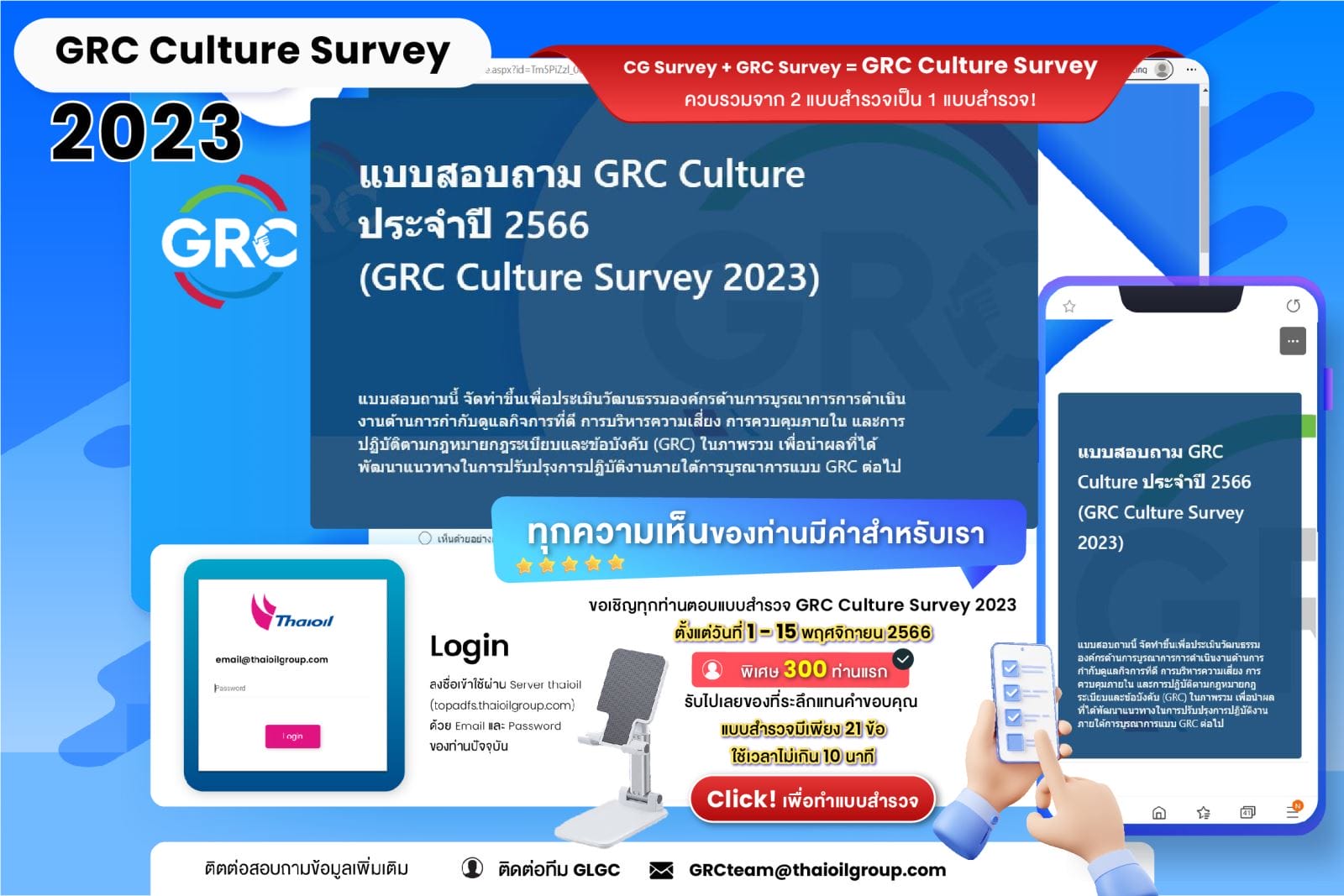Materiality
Assessment
Establishing strong relationships with stakeholders is crucial in creating long-term business value. Thaioil Group has established an internal function to facilitate continuous communication with each stakeholder group. This aims to ensure stakeholders’ perspectives and expectations are considered regarding the Company’s operations, enabling for the analysis and enhancement of Thaioil Group’s performance.
Thaioil Group has categorized its stakeholders into six main groups: shareholders/creditors/financial institutions, customers, suppliers/contractors, employees, community/society, and government agencies and related public agencies. Additionally, the Company analyzes and assesses stakeholders based on their impact and influence throughout the Company’s value chain, from crude oil procurement to the disposal of post-utilization products, as depicted below.

Furthermore, Thaioil Group has established stakeholder engagement approaches for all stakeholder groups. Internal functions responsible for each group of stakeholders have designed appropriate channels and frequencies for stakeholder engagement. Following the COVID-19 pandemic situation, the engagement significantly altered the frequency and mode of communication and interaction towards a more predominant online format.
Thaioil Group regularly conducts an annual review and analysis of material topics that significantly impact stakeholders and the business. This includes assessing the Company’s impact on external factors (inside-out) and the impact of external factors on the Company (outside-in) in accordance with the Double Materiality Principle aligning with the Global Reporting Initiative (GRI) Standards 2021. Additionally, the Company has applied the AA1000 Accountability Principles (AA1000 AP) 2018 and the International Integrated Reporting Council’s Value Creation concept for materiality matters. Furthermore, the process has been independently verified by an external assurer on an annual basis.
In 2024, Thaioil Group assessed materiality topics from the beginning of the year. The outcomes derived from this assessment became an integral part of consideration for the sustainability strategy during the Strategic Thinking Session (STS). This session aimed to support planning, target-setting, and resources allocation across six capitals, namely Financial Capital, Manufactured Capital, Natural Capital, Human Capital, Intellectual Capital, and Social and Relationship Capital.
Material Topics Identification
Thaioil Group assessed the 2024 material topics by analyzing internal and external drivers. The internal driver’s analysis includes the analysis of the Company’s context and the short-term, medium-term, and long-term Business Strategic Direction. Additionally, the external driver’s analysis involves interests and concerns of stakeholders derived from feedback of all six stakeholder groups, global sustainability trends recognized by international organizations, such as the World Economic Forum (WEF) and the International Petroleum Industry Environmental Conservation Association (IPIECA), as well as interests from ESG Raters and Standards, for example, the Dow Jones Sustainability Indices (DJSI), the GRI 11 Oil & Gas Standard, and the Sustainability Accounting Standards Board (SASB), etc. These findings were prominently utilized in reviewing relevant material topics associated with Thaioil Group, building upon insights gained from previous years.
Material Topics Prioritization
Thaioil Group prioritized 2024 material topics by reviewing the results of the previous year’s materiality assessment through various external factors that could potentially impact the business and stakeholders. This prioritization was accomplished through a collaborative workshop with the executives from internal functions responsible for sustainability development to reassess both the positive and negative impacts on the Company’s value creation as well as evaluating the impacts on stakeholders’ interest for those topics. The material topics were grouped into high, medium, and low levels of importance through a ranking system employing criteria based on two dimensions:
1. Impact and importance to Thaioil Group’s ability to create value
This dimension evaluates the likelihood of both positive and negative impacts of material topics, the impacts on the Company’s net revenue, reputation, and corporate assets.
2. Impact and importance to the stakeholders
This dimension assesses the level of positive and negative impacts on stakeholders together with stakeholder opinions and recommendations over the next 3-5 years.
Validation of Material Topics
The Sustainable Development function was the first in line to review the comprehensiveness of material topics. The results were then reported to the highest management level, the Sustainability Development Steering Committee, chaired by the CEO and President, for the final review and endorsement of the material topics, considering both internal and external impacts. After that, the material topics were also endorsed by the Board of Directors’ Subcommittee, namely the Corporate Governance and Sustainability Committee.
Moreover, an external independent verifier was invited and participated to ensure the accuracy and completeness of the stakeholder engagement and materiality assessment process, and related key ESG performances.
Strategic Integration for Organizational Risk Management and Strategy (Strategic Integration)
After the materiality assessment was approved and signed off, the Sustainability Development function will integrate material topics into the Company’s Enterprise Risk Management (ERM) process to formulate mitigation plans as needed and to support the consideration of strategic planning through the annual Strategic Thinking Session (STS) business planning process. This will serve as a pivotal foundation for sustainable organizational management by establishing policies, objectives, and strategies, both in the short-, medium-, and long-term, as deemed appropriate.
Results of
2024 Materiality Assessment
The result of the 2024 materiality assessment revealed the contextual changes that positively and negatively affected the stakeholder’s expectation and businesses in creating long-term value. In particular, there was heightened attention to climate change urging the Company to adjust its strategies to transition towards a low-carbon society. Additionally, the crude oil spill incident in late 2023 heightened the importance of environmental management systems and biodiversity. In response, Thaioil Group is committed to advancing the environmental management system to enhance confidence in minimizing environmental impacts, ensure safety for communities and society, and continuously protect terrestrial and aquatic biodiversity. This ongoing commitment to reach sustainability of Thaioil Group has led stakeholders to recognize good governance, air quality management, and circular economy as fundamental issues for operating businesses. This requires effective management in compliance with laws, standards, national and international practices. The result of the 2024 materiality assessment is illustrated and detailed in the following table.
Impact Assessment to
Thaioil Group has conducted a materiality analysis to identify and value the positive or negative impacts to the Company’s external stakeholders based on the Company’s business operations, products and services, and supply chain. The impact measurement and valuation assessment are then conducted based on the “Natural Capital Protocol” and “Social & Human Capital Protocol” principles to identify and measure both externally positive and negative impacts on environment and society to quantitatively value the external impact on society and the environment from the Company’s business operations. Based on the Company’s analysis, the two topics relevant to the Company’s external stakeholders are shown in the table below:
1st Significant Impact | 2nd Significant Impact | |
|---|---|---|
Material Issue for External Stakeholders | GHG Emissions : Thaioil Group is striving to utilize and develop environmentally friendly products e.g. low carbon products (avoided CO2 emissions from Gasohol and Biodiesel) and green procurement. This contributed to positive changes in climate conditions. | Air Quality Emissions (NOx, SOx, and VOCs Emissions) : Thaioil Group is committed to minimizing environmental impacts to our society and environment through NOx, SOx, and VOCs Emission Management. The air pollutants still contributed to negative changes in climate conditions. |
Topic relevance on external stakeholders
| Positive Impact Thaioil Group is committed to reducing GHG emissions in operations and excelling in research and development of environmentally friendly, low-carbon products. By offering these products. For supply side, the purchasing of environmental friendly product for use in office is also conducted. These presents an opportunity to Thaioil to generate positive impacts through: • Reduced atmospheric and climate impacts: Customer consumption of low-carbon products can contribute overall GHG emissions reduction at a national level, leading to positive effects on the environment and climate. • Improved community health and wellbeing: low-carbon products reduce air pollution and its associated health risks, in which Thaioil contributes to a healthier and more livable environment for communities surrounding its refinery. • Enhanced value of ecosystem services: Low-carbon products help mitigate the negative impacts of climate change on ecosystems, preserving valuable natural resources for future generations. Negative Impact Thaioil’s refinery operations emit GHG scope 1 and scope 2 emissions, contributing to negative impacts on the environment, society, and customers, such as: • Longer drought seasons: Increased temperatures and changes in precipitation patterns can lead to longer and more severe droughts, impacting water availability and agricultural productivity. • Higher temperatures: Rising global temperatures can have a range of negative consequences, including heat stress, increased energy demand, and habitat loss. • Fluctuating climate conditions: Climate change can lead to more extreme weather events, such as floods, storms, and wildfires, causing significant damage and disruption. | Positive Impact To control and minimize air emissions, Thaioil Group has installed high-quality technology capable of effectively converting sulfur from waste gases into a liquid product for use in other industries, rather than emitting it into the environment. This improvement presents an opportunity for positive impact by: • Preventing and minimizing pollution: Reducing air emissions helps to improve air quality and protect the environment, public health, and communities surrounding the Company’s refinery. Thaioil Group’s air emission pollutants (NOx, SOx, and VOCs Emissions) are controlled at standards exceeding legal requirements by the law and the environmental impact assessment (EIA). • Maximizing the utilization of production waste and emissions: Using the Company’s innovations to find beneficial uses of production waste and emissions, and upcycling them into new products. This promotes resource efficiency and circular economy principles, while contributing to a more circular and sustainable economy. Negative Impact Thaioil Group’s air emission pollutants (NOx, SOx, and VOCs) result from its operational activities and production, impacting the external environment, society, and customers. These pollutants contribute to: • Decreased air quality: Air pollution can cause respiratory and cardiac illnesses, leading to premature deaths. • Net negative changes in the atmosphere: The release of these pollutants contributes to climate change and its associated negative consequences to the environment. |
Output Metric
| • Avoided GHG emissions (Scope 3) from environmentally friendly products : 919,559 tons of CO2 equivalent • Avoided GHG emissions (Scope 3) from green procurement: 1,852.40 tons of CO2 equivalent | • NOx emissions: 4,243 tons • SOx emissions: 6,568 tons • VOCs emissions: 1,023 tons |
Impact Metric | Societal / environmental benefits = 6,546 million THB | Societal / environmental costs = 1,865 million THB |
Impact Metric Proxy | Impact metrics proxy: • CO2 = 7,105 THB/Ton CO2 equivalent | Impact metrics proxy: • NOx = 1154,669 THB/Ton • SOx = 168,677 THB/Ton • VOCs = 98,638 THB/Ton |
Reference for Impact Metric Proxy | US Government, IWG on Social Cost of Greenhouse Gases, 2021. Pg 16 (Page 16): Technical Support Document: Social Cost of Carbon, Methane, (whitehouse.gov) | TruCost (2013) Natural Capital at Risk. (page 41, average costs): http://naturalcapitalcoalition.org/wp-content/uploads/2016/07/Trucost-Nat-Cap-at-Risk-Final-Report-web.pdf |







